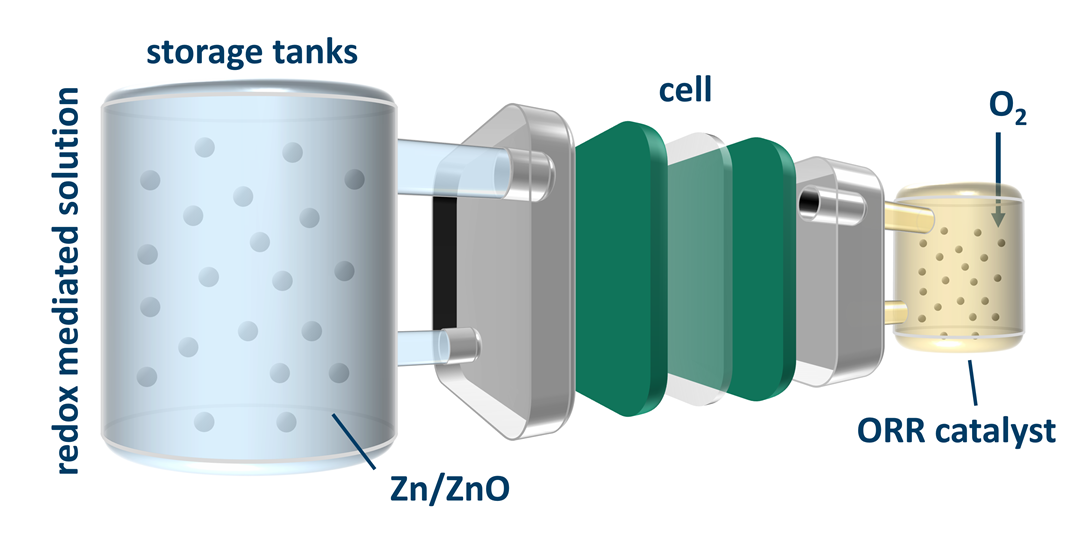Novel strategies for the reduction of oxides to metal during charging operations and a new flow battery design are necessary to make electrochemical energy storage an attractive solution for long-duration energy storage.
Redox flow batteries (vanadium-based, and metal-air Zinc-Bromine flow batteries) are considered a promising electrochemical energy storage technology for stationary energy storage. However, the relatively short discharge duration (12h) for long duration energy storage (LDES) applications, high CAPEX, and safety and sustainability issues (toxicity and corrosivity of vanadium, halogens) still hamper their full commercialization.
ReZinc will “rethink” the operations and design of conventional metal-air flow batteries by developing and demonstrating at lab-scale (TRL 4) a completely new redox-mediated zinc-air flow battery, that uses ZnO/Zn as a storage vector for electricity by use of electrochemical mediators for the charge transfer processes in the battery. A disruptive redox-mediated strategy for enhanced charge transfer processes is employed for achieving the first dendrite-free metal-based flow battery. Confining the metal/metal oxide redox reaction in the negative reservoir and eliminating the electroplating process inside the cell will enable long-duration discharge (>days) and long-term storage capabilities (months) with consequent commercialization of the first economically viable electrochemical energy storage technology for LDES applications.
SINTEF Energi AS will coordinate the project, develop multi-physics models for optimizing the cell performance, and will design and construct a 1-kWh flow battery with a new tank design to be tested and validated for 6 months.

